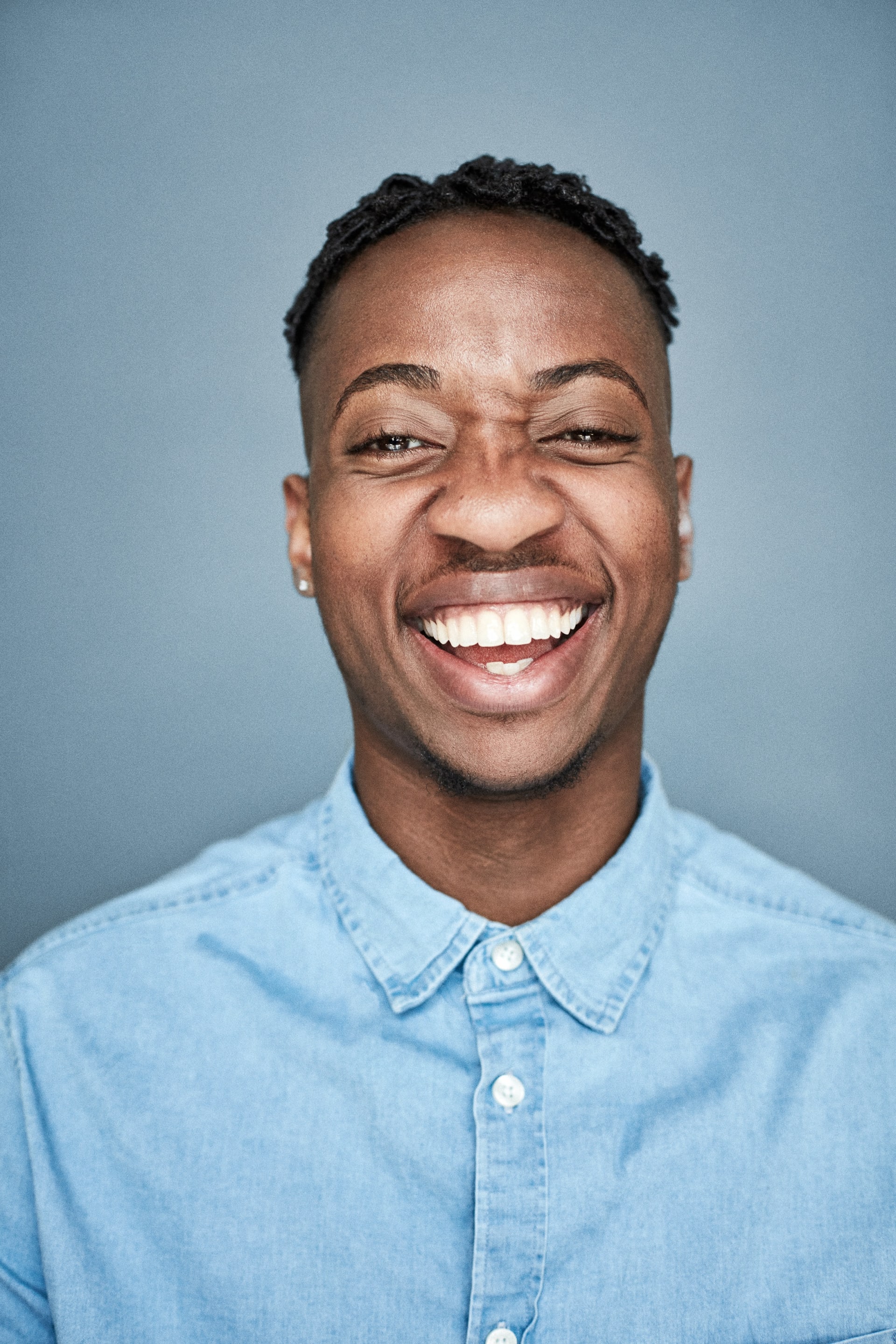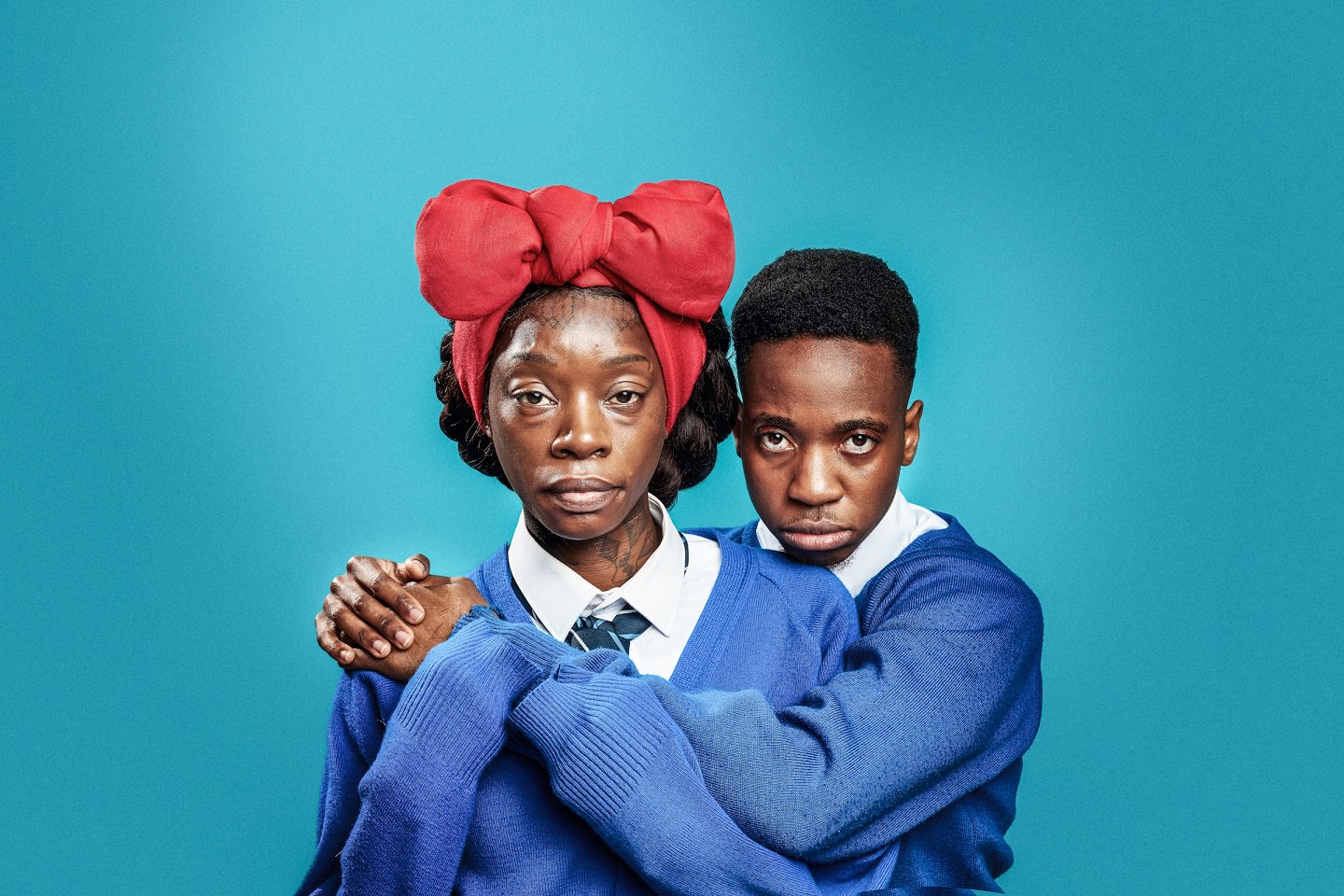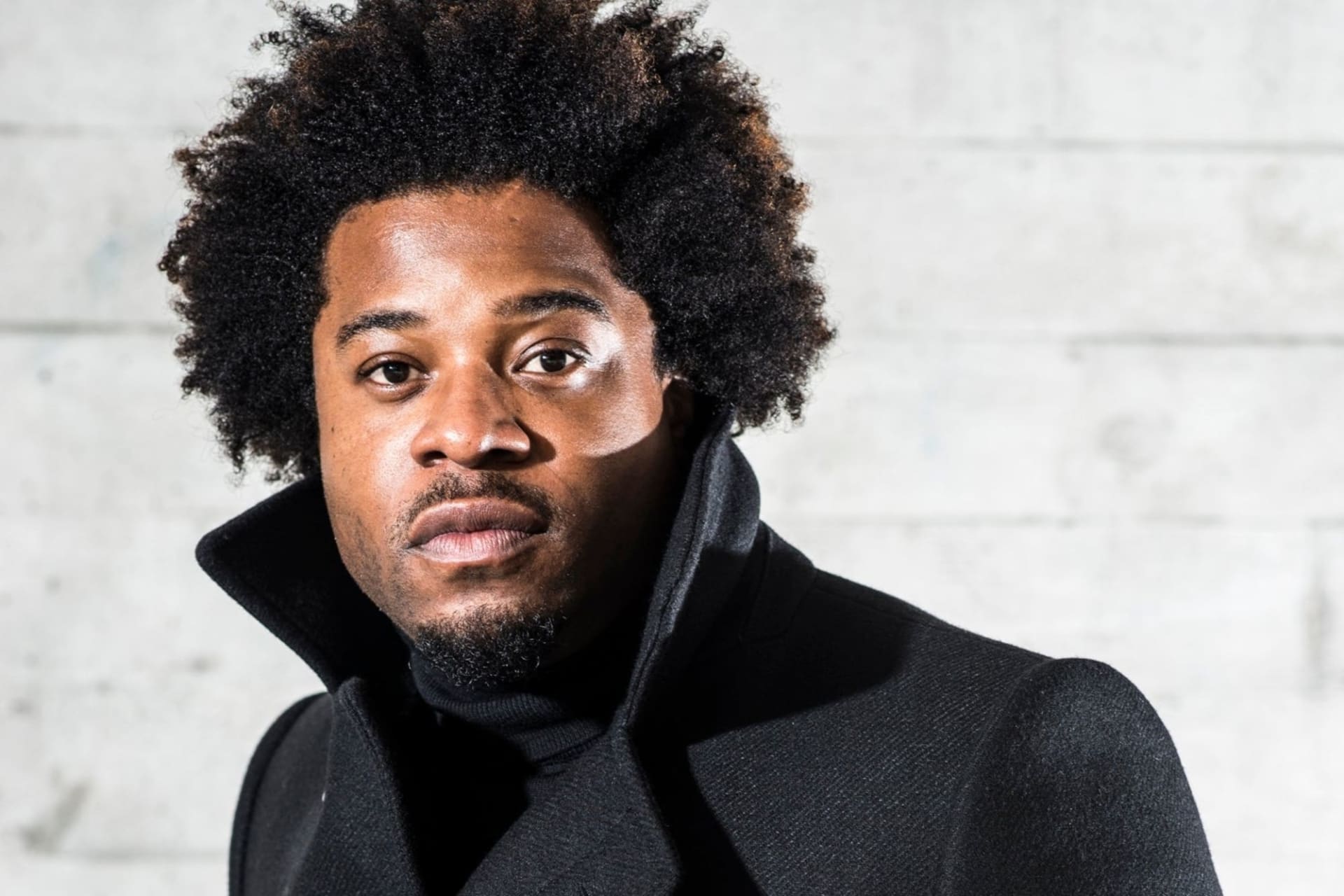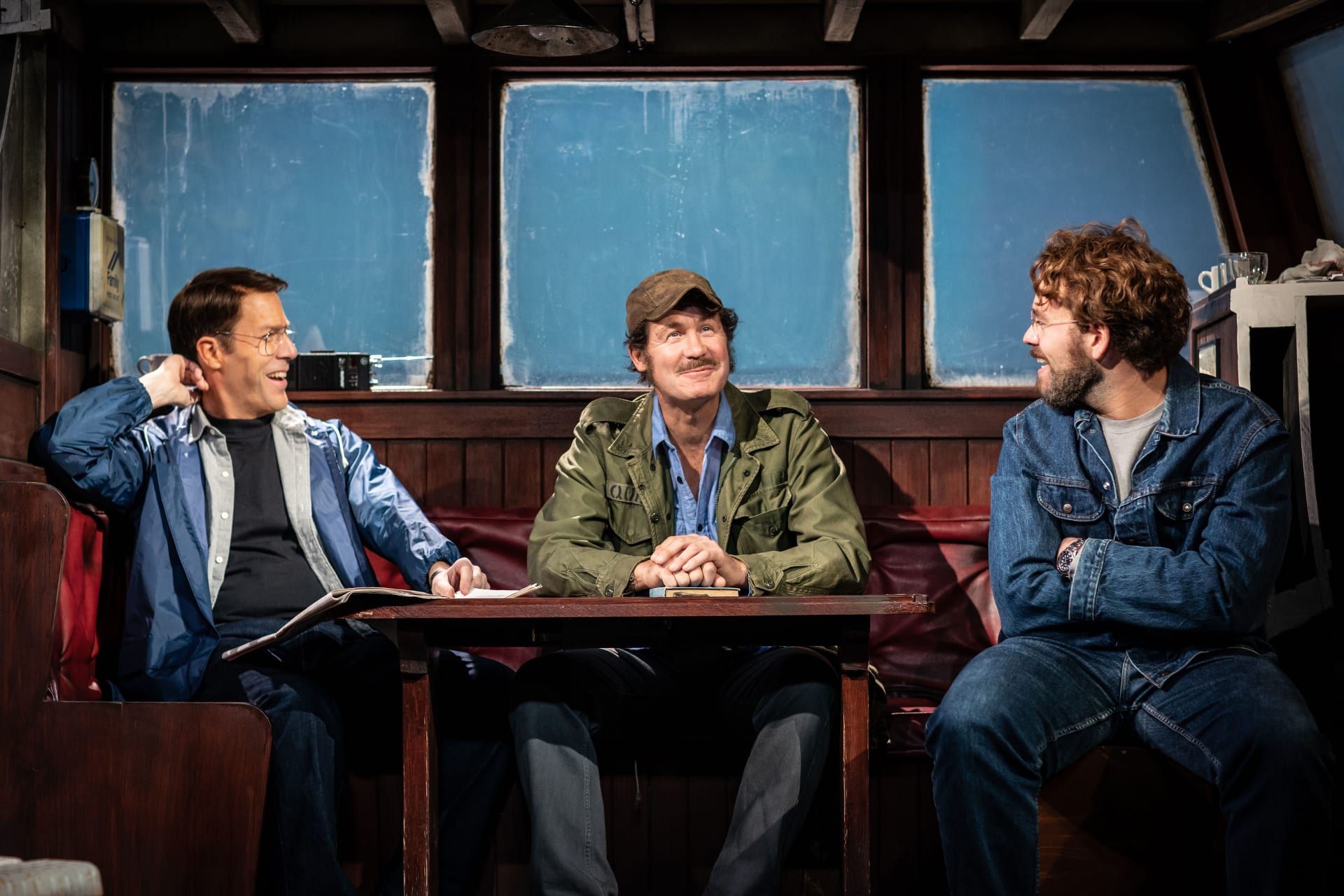Kamari Romeo is a London-based actor and producer who seeks to offer training and performance opportunities curated by underrepresented voices. His business Humblebee Creative Ltd offers fresh perspectives on minority voices through theatre, spoken word, live art, archiving and documenting practices. Humblebee’s Toybox is a 22-minute visual poetry album with music and puppetry, looking at experiences of British childhood. Written and performed by Romeo, Sirena Reynolds, Tobi, Tiahnna and Maya, Toybox endeavours to bring honest conversations into sharp focus via a series of short, filmed poems, performed to original music, in collaboration with five care leavers aged 20-27.
“After my mother died suddenly in April 2018,” says Romeo, “I began to take an interest in the idea of deconstructing my childhood through the perspective of a child, piecing together the memories of my care experience. It suddenly felt more important than ever to delve into my history as a second-generation Zambian immigrant, growing up in England, playing with Chinese toys and watching American TV to figure out what parts of my multicultural upbringing I would hold on to as an adult out of the system. Through my mentorship with arts collective Lyrix Organix, I wanted to dissect how I could use poetry as a tool to communicate empathy, forgiveness and worth.”
We got in touch with the performer, asking first if he’s been present at any of the protests following the appalling death of George Floyd, and how he feels he can bring about change.
I haven’t attended any protests and have not ruled out the option. I fully support and encourage individuals fighting for equality in the ways they feel are appropriate, providing their expression of this protest is informed. At this time, it is really important for me to conserve my energy, preserve my mental health and stay focused on using my gift as a creative producer to make change in my community. There are so many types of work that need to be happening simultaneously in order to make this change; this includes visionaries, healers, educators, storytellers and frontline responders.
Are you pouring any anger or sadness into your work?
My projects are usually led by some form of emotion and yes, anger and sadness does play a large part in the formation of those ideas. I do however believe that in order to be free from the control those emotions hold, you must find a balance between self-care, talking about your emotions outside of your work and having a focused approach to the work so that the lines aren’t blurred. I guess it’s part of the whole art as therapy vs. therapy as art debate. The answer will be different for everyone.
Are there any ways in which incidents like George Floyd’s death affect BAME care leavers differently to other members of the BAME community?
When we reference the ‘BAME’ community we include narratives on black, Asian and multiracial people (for the most part). The characteristics of an ethnic group by some definitions are considered to be very different from those that are common in western culture; some people have even argued that national minorities such as the Cornish, Welsh, Scottish and Northern Irish should be included in the definition. I wonder if traveller communities and maybe even refugees are considered BAME. I genuinely don’t know. Basically, the term has all the best intent but says everything and nothing. I can only speak on behalf of my experience as a black person but even then can’t speak on behalf of all black care leavers. Some people are raised with families/guardians that look like them and some are not; some have access to their cultures, heritage and history and some do not. I can speculate through my personal experience that maybe care leavers are doing slightly better during this time due to having a stronger relationship to loss. We spend a lot of our lives grieving for various things and have a resilience that can be both a blessing and a curse at times. At the end of the day we’re all human and I have seen people of all races broken by this event and other ones that have happened before this.
Care leavers are at the heart of Toybox (the spoken word pieces of which are harrowing, poignant and brilliant, so thank you). Sum up the project and explain how crucial it’s been in helping you come to terms with your childhood.
Thank you! The project was named Toybox to take experiences, play with them and put them back with a better understanding. This metaphorical toybox was upgraded from a shoebox to a force field of poems, the best material for exploring memories. Although the main body of work was my story, I wanted to include other voices because I knew there were so many other untold stories. Even though I had decent relationships with my foster families, I was never once connected to conversations/resources around who I was as a person and the positive parts about where I came from. The filmed poems – written at ten different ages by five care leavers – form an archive of our experiences. Creative, unapologetic, truthful and on our own terms. We don’t get to do that often.
What does the future hold for Toybox?
I would describe Toybox as a contemporary archive – maybe one day we can add more stories. Thinking big, I would love to see this project and other spoken word projects on television.
What else is on your schedule, both as an individual performer and as artistic director of HumbleBee Creative?
Watch this space due to Covid-19... I’m meant to be acting in Young Jean Lee’s play Straight White Men at Southwark Playhouse. The show is due to run 16 September-10 October and I’m really excited about it! In terms of Humblebee projects, I am launching a creative black history programme for young people and a new UK-based drag collective. These are both annual programmes which I’ve been inspired to create as a response to the last few months. I will also be launching the second year of Kamp Kiki, an indoor weekend retreat for trans women, trans men and non-binary people from the African diaspora. In the event the face-to-face Kamp is not possible this year, we are looking at the options for an online version of the retreat. I would suggest anyone interested in being a part of it stays in touch via social media or the Humblebee website.
What are your thoughts on JK Rowling’s tweeting?
People like JK Rowling voice their opinions in the way they do because they are scared of their identities being erased. Erasure is a very scary and painful thing. As a trans man, it is an experience I can also relate to. For someone that makes her living as a writer however, you would think she would understand the nuances of language, discussion and identity and how to navigate that on social media. My opinion is that 280 characters isn’t the smartest way to go about having such a large discussion and that’s probably why I don’t use Twitter for these conversations. The discussion should be about privilege and how some intersections of identity can affect equality. It’s only then that we can move forward with solutions that factor in safety for both parties. If we continue to have black and white conversations about complex topics, we can’t possibly move forward. I don’t hate her. I also refuse to give her any more energy/power than is necessary. (Don’t @ me.)
Which BAME voices are you reading, watching and listening to right now?
Ama Ata Aidoo, George the Poet, my copy of Post Traumatic Slave Syndrome is on the way and OMG… Spotify’s Black Lives Matter playlist is a VIBE!










